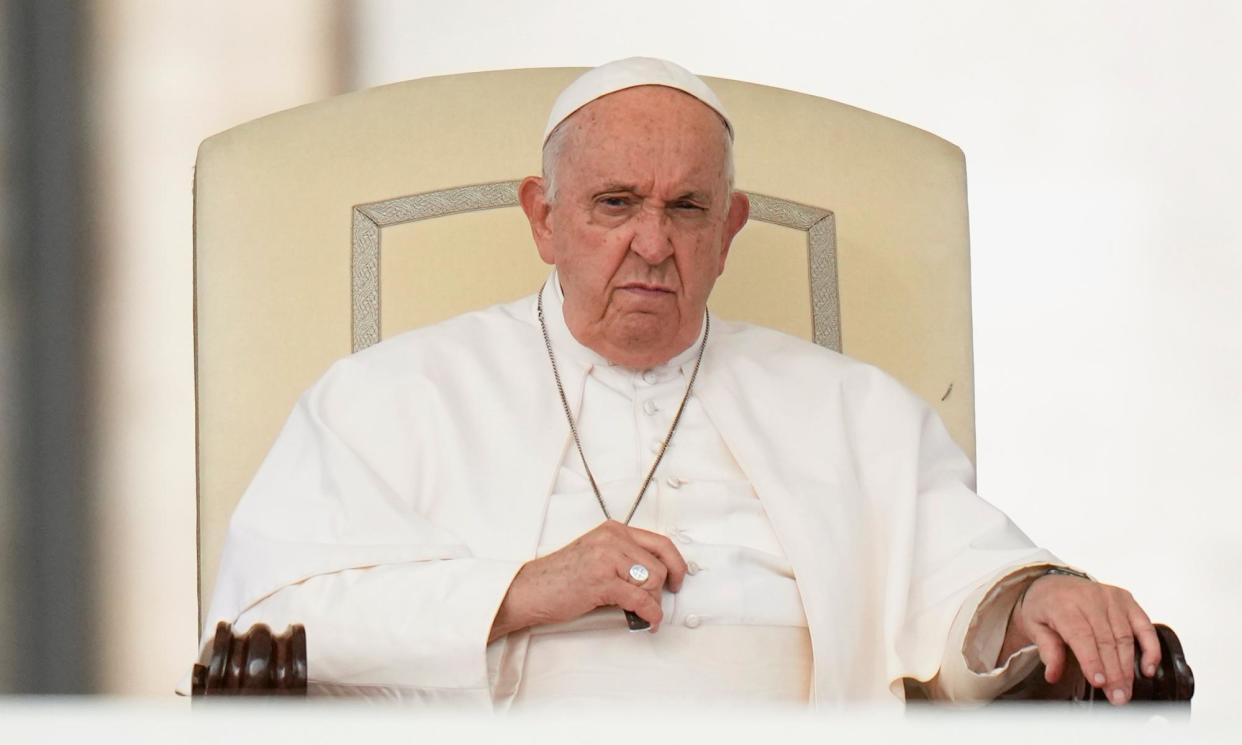Vatican taken to trial for first time in an English court

The Vatican has gone on trial in an English court for the first time, accused of subjecting a British businessman to “incoherent and confused” allegations over a London property deal.
Raffaele Mincione was convicted by a Vatican tribunal last year over the Holy See’s purchase of the former Harrods depository at 60 Sloane Avenue in Chelsea. The Vatican had accused the financier of inflating the price of the property.
In proceedings that have been called the Vatican “trial of the century”, Mincione, one of 10 people prosecuted, was sentenced to a five-and-a-half-year jail term by the tribunal for offences that his lawyers claim “seem to be based on a provision of Canon [Catholic] law”. The Vatican said he had been convicted of money laundering in relation to 60 Sloane Square, as well as embezzlement and bribery.
Mincione is seeking to appeal against that decision but, in civil proceedings that began in London on Wednesday, he is asking the high court of England and Wales to declare on his behalf, and that of three companies he is said to exercise control over, that they acted in “good faith” in relation to the 60 Sloane Square deal.
The case brought against the secretariat of state of the Holy See will, unusually, mean that a senior Vatican official – Archbishop Edgar Peña Parra – will testify, and it is believed to be the first time the Vatican has stood trial in a foreign court.
In court documents, the secretariat said a £275m valuation of 60 Sloane Square made by the claimants in 2018 had been “a clear, unambiguous and false representation of the market value of the property”, which was sold by the secretariat for £180m in 2022.
But in written submissions, Charles Samek KC, for the claimants, said the £275m had been an “audited valuation” and there had been no evidence that the secretariat’s representative had understood it to be the market value, “or that he relied on it”.
He said that Mincione had “made a submission to the UN special rapporteur on the independence of judges and lawyers, drafted by Rodney Dixon KC, asserting unfairness of the Vatican proceedings”.
Dixon’s opinion said that Pope Francis had secretly changed Vatican law four times during the investigation to benefit prosecutors, and that it called into question the independence and impartiality of the tribunal, since its judges swear obedience to Francis, who can hire and fire them at will.
After the first verdicts were issued, the Vatican said the judges had acted independently and that the trial had been carried out “in full respect of the guarantees for the suspects”.
Charles Hollander KC, for the secretariat, claimed in his skeleton argument that the UK case had been brought by the claimants to “‘manage’ the (understandably) negative public relations consequences of being accused of having beeninvolved in serious criminal activity”.
He added: “The claimants had all the information as to the value of the property; what they had said to the SdS [secretariat] about the value had been consistently misleading and consistently exaggerated. They had received a series of valuations of the property, none of which supported the value represented.”
The trial is expected to last four weeks.

 Yahoo News
Yahoo News 
